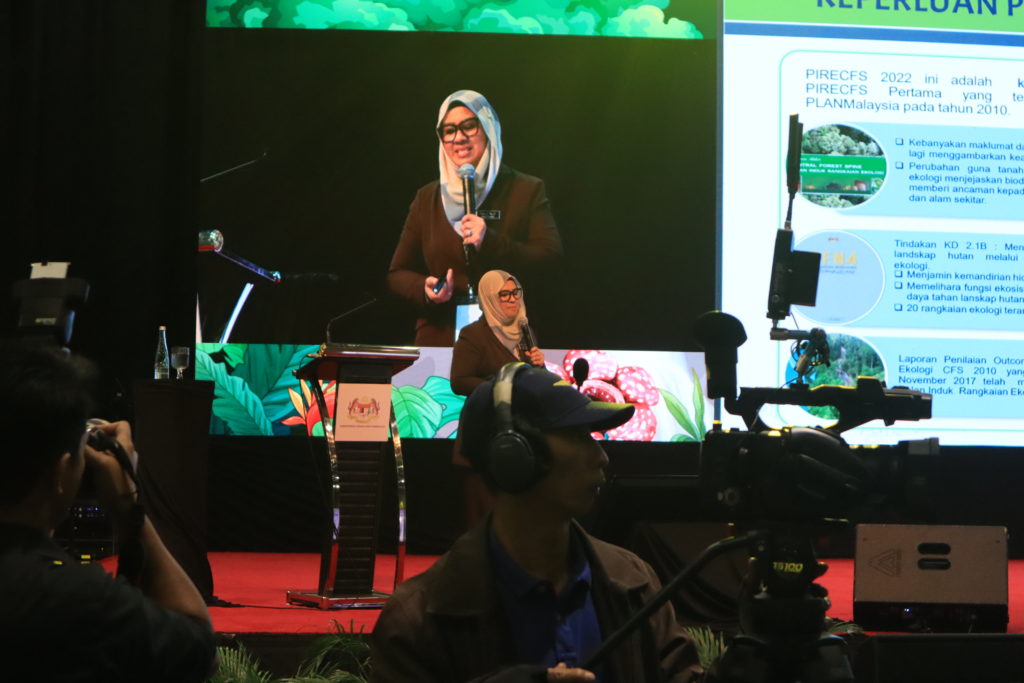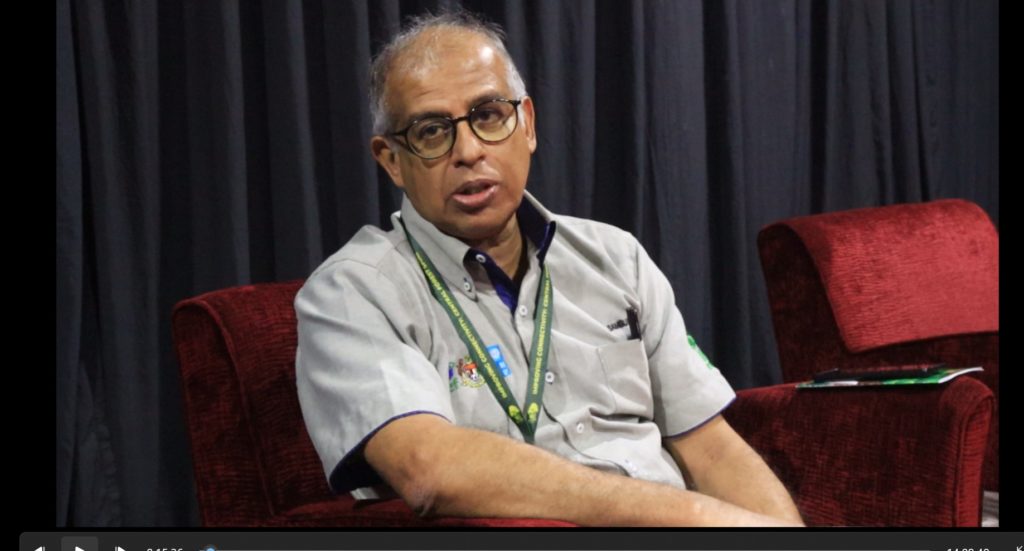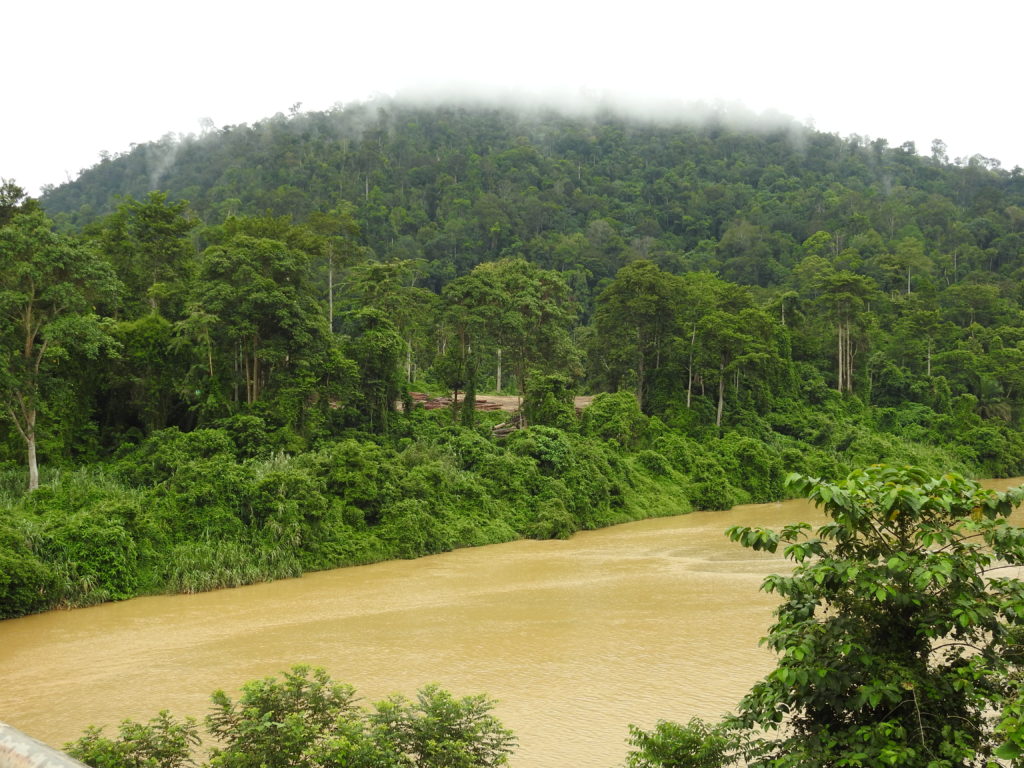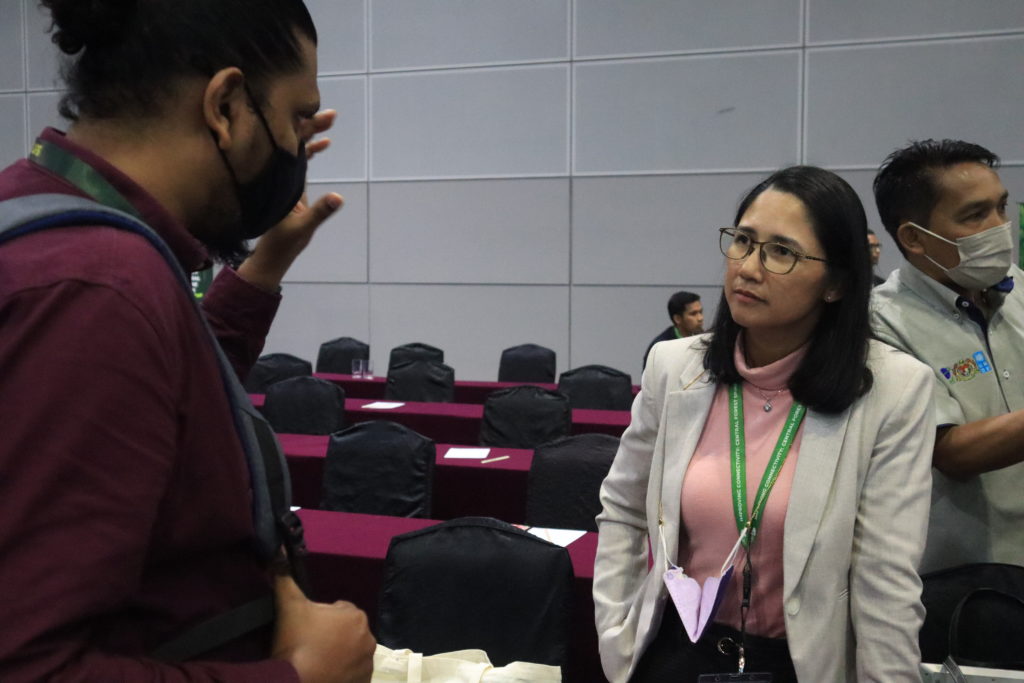
PLANMalaysia presenting on reconnecting the forests with the Master Plan For Ecological Linkages CFS.

KUALA LUMPUR, Dec 8 – The extension of funding by another year for the Improving Connectivity in the Central Forest Spine (IC-CFS) project will go a long way to enable the Malaysian government meet its targets to reduce further fragmentation of its forest complexes in the peninsular (collectively known as Central Forest Spine) and conserve the rich biodiversity and ecology systems in the forest areas, said IC-CFS project manager Dr. Samsudin Musa.
The IC-CFS is a collaborative effort between the Malaysian government and the United Nations Development Programme (UNDP), which has been providing funds through the Global Environment Facility (GEF) for the implementation of various preservation and conservation efforts towards the CFS, a rainforest area that spans over 6.71 million hectares.
Speaking to Weekly Echo on the sideline of the recently held IC-CFS Project Showcase programme here, Dr. Samsudin said a total of nine initiatives had been successfully implemented in 2021 and 2022 under its wings and their works were presented at the event.
These included the Preservation and Conservation of Biological Diversity in Forest Management: Challenges and Directions by the Forestry Department of Peninsular Malaysia; Ecological Network Master Plan by CFS of PLANMalaysia; Gazetting of Government Land Forests as Permanent Forest Reserves in the CFS Ecological Network by the Forestry Department of Peninsular Malaysia and Dr. Christine Fletcher; Biodiversity, Ecosystem Services and Carbon Stock Monitoring Tool and Ecological Corridor Management Plan by the Forestry Research Institute of Malaysia (FRIM).

Other initiatives presented were Enforcement through SMART Patrolling and Empowerment of Forestry and State Park Officers Under the Wildlife Conservation Act 2010 by the Department of Wildlife Protection and National Parks (DWPN); Community Involvement in the Social Forestry Project of Nursery and Seedling Sale by the Perak State Forestry Department as well as Community-Based Organization Programme – Fish Sanctuary and Fly Fishing by Perak State Park Corporation; Development of a Community-Based Ecotourism Program Module in the CFS Ecological Corridor Area by UiTM Technoventure and Model of Sustainable Financing Options for Biodiversity Conservation by the Forestry Department of Peninsular Malaysia.
Dr Samsudin said funding for the project, starting from 2014 was due to end this year but this was extended following an independent assessment of all the initiatives taken.
He said the main achievements of this project included the gazettement of an area of 32,783 hectares of forest land on government land to permanent reserve forests or Hutan Simpan Kekal (HSK); the implementation of SMART system-based integration patrols in enforcement activities by the State Forestry Departments of Pahang, Perak and Johor.

The standards of living was also raised for the forest communities through sustainable projects like Tualang Honey & Beeswax Production, Fish Sanctuaries, Hornbill Watching Program, Social Forestry Program.
The Ecological Network Management Plan was also established during this period.
About the IC-CFS
The Improving Connectivity in the Central Forest Spine (IC-CFS) is a project seeking to conserve biodiversity and ecosystem services in the priority forest landscapes within the CFS.
Incepted in 2014, the project is led by the Forestry Department of Peninsular Malaysia in collaboration with the Department of Wildlife and National Parks (PERHILITAN) and Forest Research Institute Malaysia (FRIM) with the support of The United Nations Development Programme (UNDP) and the Global Environment Facility (GEF) grant.
The main objective of IC-CFS is to strengthen the federal and state capacity in executing the CFS Master Plan to enhance forest connectivity and law enforcement against wildlife and forestry crimes.
Established under the 2005 National Physical Plan (NPP), the Central Forest Spine (CFS) serves as the backbone of the Environmentally Sensitive Area (ESA) network in Peninsular Malaysia. It comprises eight main forest complexes; Kedah Singgora Forest Complex, Bintang Hijau Forest Complex, Banjaran Utama Forest Complex, Greater Taman Negara Forest Complex, Benom Forest Complex, Chini-Bera Forest Complex, Southeast Pahang Forest Complex and Endau Rompin- Sedili Forest Complex.
Spanning over 6.71 million hectares, the CFS harbours critical mountain watersheds and catchment areas that supply water for 90 percent of the population. Home to a highly diverse range of flora and fauna species including the endangered Malayan tiger subspecies and Asian Elephant, it provides climate regulation, soil protection, and carbon storage.
–WE
All articles and reports that appear in the Weekly Echo are not funded or sponsored by any parties, corporate or political, unless explicitly stated.